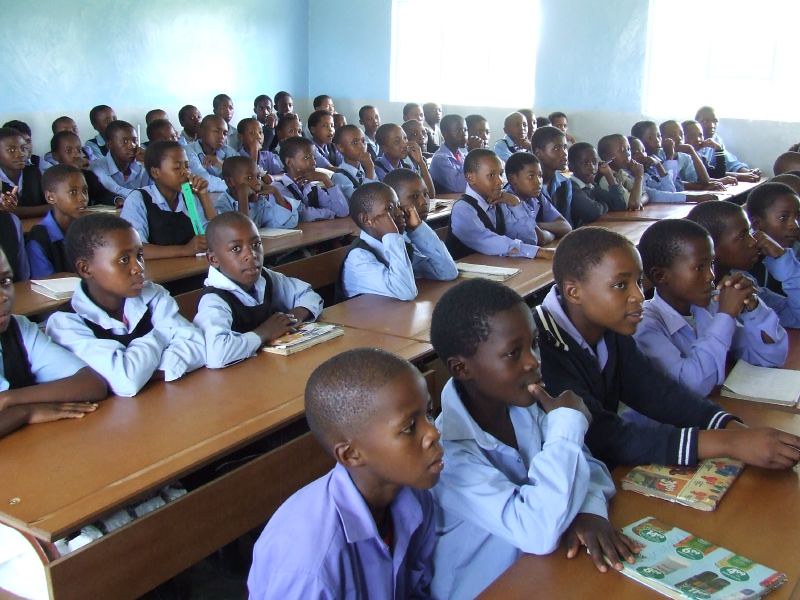Tackling Learning Poverty in Lesotho
 In Lesotho, 97% of children struggle with learning poverty, which the World Bank defines as the inability to read and understand simple texts by age 10. Despite efforts to increase access to basic education, the learning poverty rate remains alarmingly high, driven by systemic challenges in education and socio-economic disparities.
In Lesotho, 97% of children struggle with learning poverty, which the World Bank defines as the inability to read and understand simple texts by age 10. Despite efforts to increase access to basic education, the learning poverty rate remains alarmingly high, driven by systemic challenges in education and socio-economic disparities.
Causes of Learning Poverty
While primary education (grades 1-7) is free in Lesotho, many students fail to complete their studies and even fewer transition to secondary education (grades 8-10). There are two leading causes of large declines in students:
- Poverty. Many families often cannot afford indirect school costs such as transportation and uniforms. Many children leave school to work and support their families or drop out due to teenage pregnancy—both of which have a high correlation with poverty.
- Orphanhood. Lesotho has a high prevalence of HIV/AIDS and in 2021 alone, 110,000 children were orphaned due to the disease. This loss of parental support forces many children out of school to care for siblings or find work.
Few primary schools in Lesotho offer pre-primary education, limiting access. Students in pre-primary education face the same challenges as older students, such as being unable to afford books or transportation. The shortage of schools across all grade levels caused significant overcrowding, a problem that began in 2009 after free primary education was implemented. The government failed to allocate enough funding to prepare school infrastructure for the influx of students. Overcrowding has also caused a shortage of qualified teachers. While many teachers work in schools, they are not enough to adequately educate all students. Additionally, many teachers lack the literacy and mathematical skills necessary for effective instruction, compromising the quality of education. The lack of training opportunities worsens the issue, leaving many educators without proper qualifications.
Initiatives Tackling Learning Poverty
- Basic Education Strengthening Project. This initiative focuses on improving student retention and teaching quality in junior secondary schools across Lesotho. It also supports the introduction of a new curriculum in Early Childhood Care and Development (ECCD) to strengthen early education delivery. Funded by a $7.1 million grant from the Global Partnership for Education (GPE), the project aims to address foundational issues in the education system. While the GPE’s funding concludes in February 2025, ongoing efforts will be supported by the Lesotho Education Improvement Project.
- Lesotho Education Improvement Project. Approved in July 2024, this project builds on previous initiatives led by the Ministry of Education and Training. It seeks to improve the quality of education and enhance learning conditions for high-priority students. The project intends to support the construction of infrastructure that will be able to support a growing student population. Construction will consist of 189 classrooms, 1,140 restrooms, 48 laboratories and 10 workshops. These facilities are expected to benefit more than 100,000 students in primary and secondary schools across the country. The project is primarily financed by $20 million from the World Bank Group’s International Development Association (IDA).
The Ministry of Education and Training also provides the Orphans and Vulnerable Children Education Grant, which covers costs for uniforms, books, transportation and secondary education fees for children in need. This program ensures that financial barriers do not prevent access to education for the most disadvantaged students.
Moving Forward
Efforts to combat learning poverty in Lesotho extend beyond education, incorporating proposals to address the health and well-being of children. By combining infrastructure projects, curriculum reform and targeted support for vulnerable students, Lesotho aims to tackle learning poverty at its roots. These initiatives reflect the country’s commitment to providing a brighter future for its children.
– Nivea Walker
Nivea is based in Elon, NC, USA and focuses on Good News and Global Health for The Borgen Project.
Photo: Flickr
